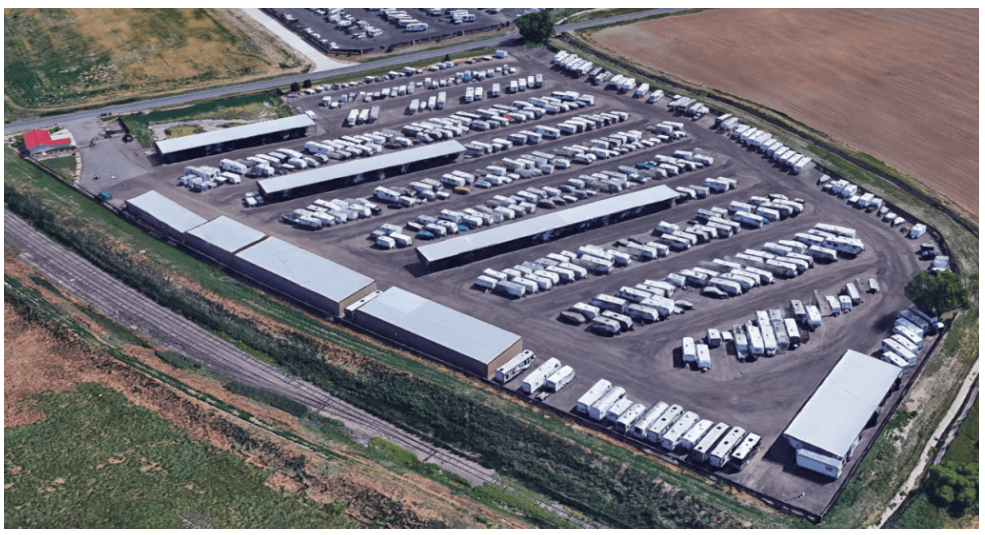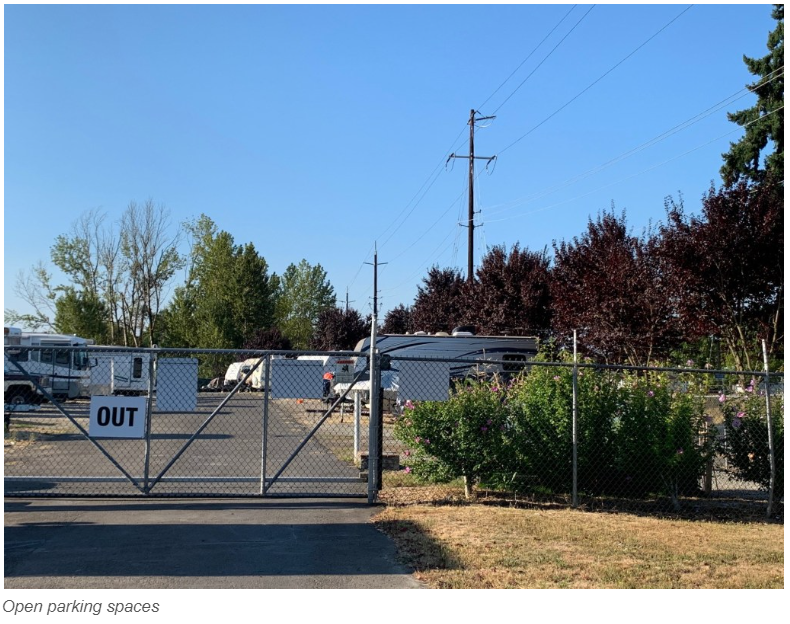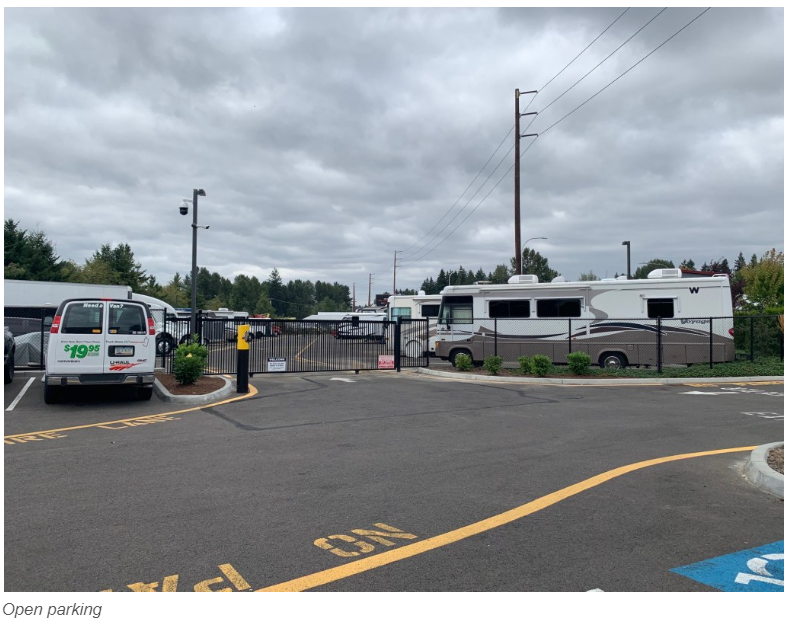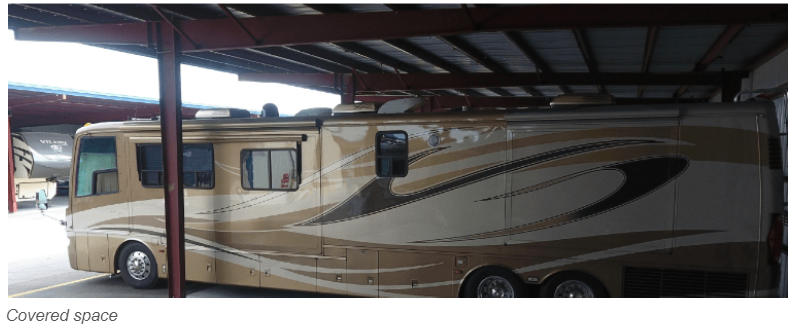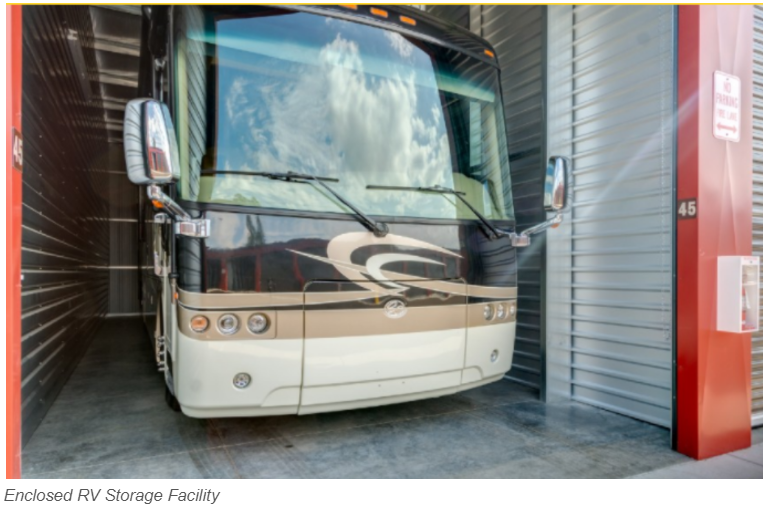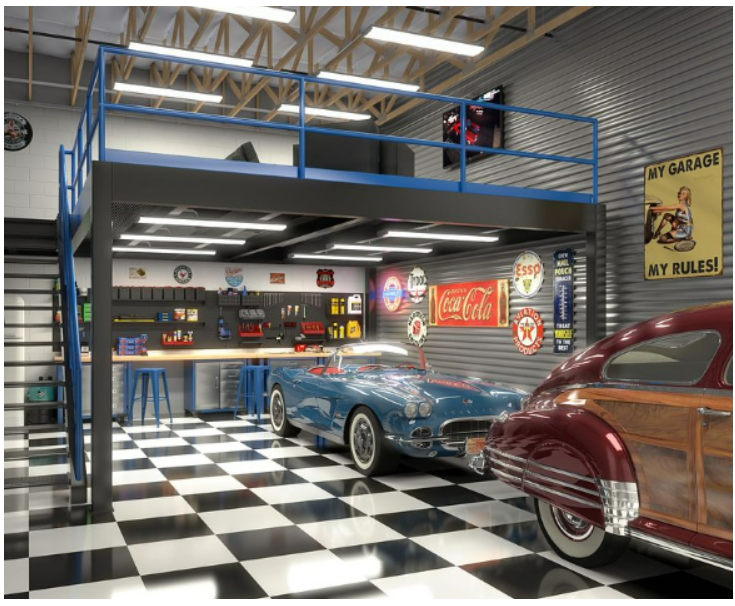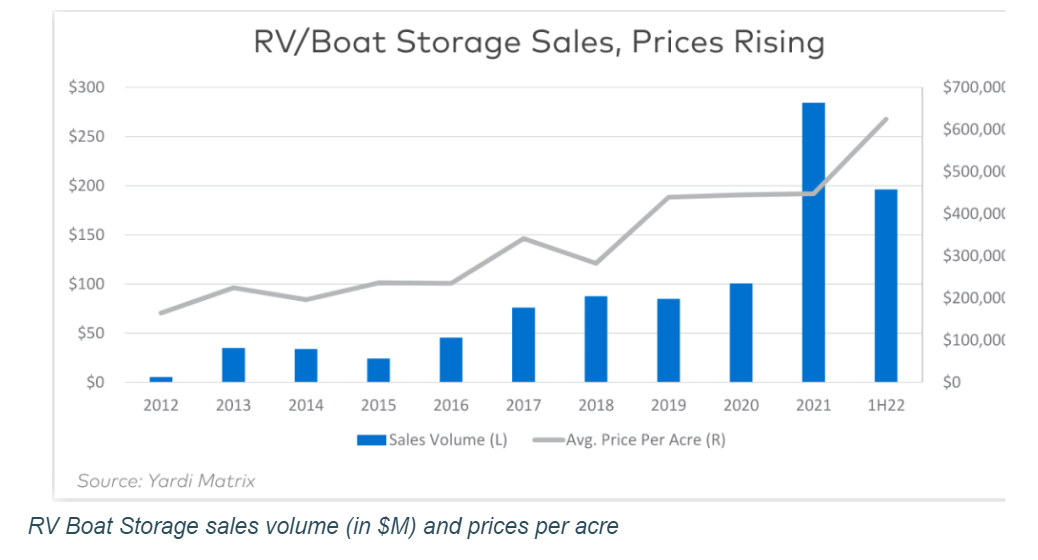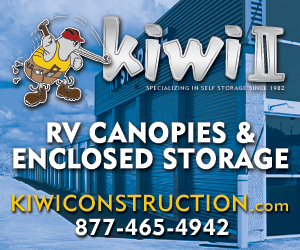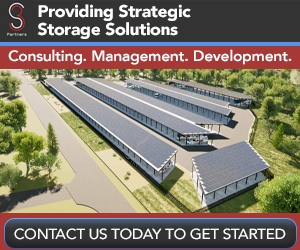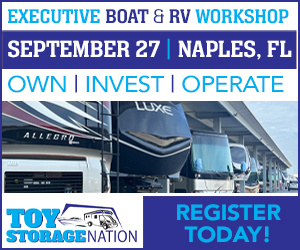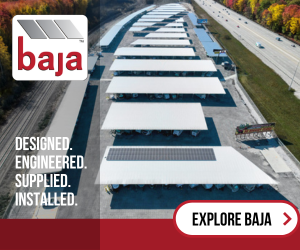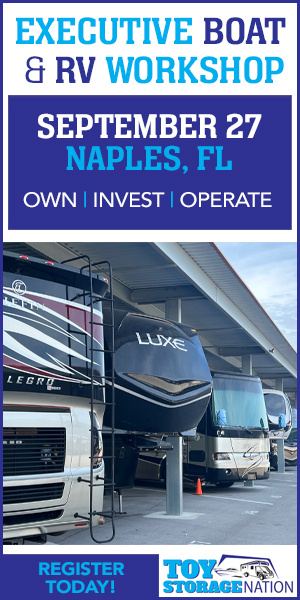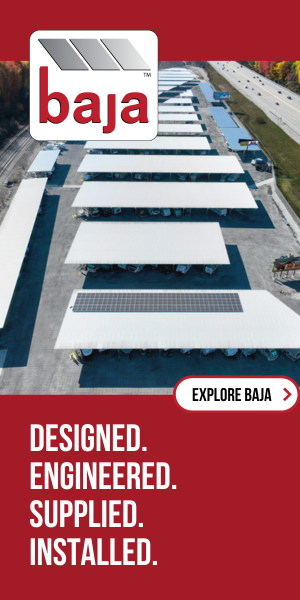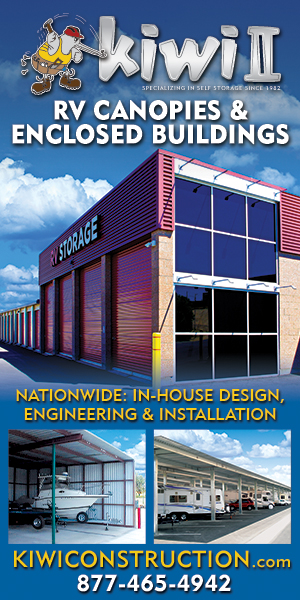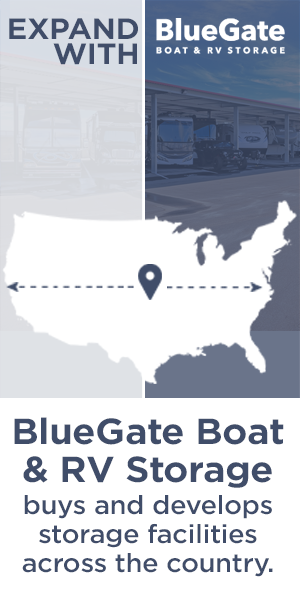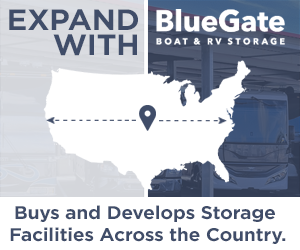By JC Keen
Boat and RV storage investing is the best form of real estate investing that I’ve encountered. One reason is that RV and boat storage facilities are great income producers and can be operated very passively. This is especially true when facilities can be easily automated and in some cases operated without an onsite manager.
In my search for amazing deals, I’ve invested and/or explored many real different estate opportunities, such as residential real estate, multi-family real estate, mobile home parks, RV parks, laundromats, self storage, etc. One of my favorite spaces to invest in is mobile home parks. The only other investment that I believe is superior to mobile home park investing in today’s market is boat and RV storage investing.
Most RV storage facilities operate as both RV and boat storage. But the reality is that these storage facilities are often used to store other things, including towable jet skis, trailers, vehicles, flatbed trucks, etc. Often these facilities also offer self-storage spaces, container storage, etc. Boat and RV storage facilities are extremely flexible as these can more easily be further developed and expanded than other types of developments.
Is boat and RV storage a good investment?
Absolutely! I have a solid 10 reasons for why boat and RV storage facilities are great investments, but before we get to those, let’s review the types of facilities that are out there so you can get a better idea of what you want to build or purchase.
RV Storage Types
Open space
This is the cheapest form of storage. Think of a gravel lot with a fence, a gate and a lock. Most of these facilities are un-manned and won’t have delineated spaces and, as such, spaces are not assigned. These facilities are usually small and often located in urban areas.
Open parking spaces
These facilities are asphalt paved and have stripping to delineate each space. In most cases these facilities will have high security fencing, gates with key-pads, lighting and security cameras.
Covered storage
These facilities provide open steel canopies, in addition to things like asphalt paving, high security fence, gates with key-pads, lighting, security cameras, etc. Many of these facilities also have electrical plugins.
Enclosed warehouse storage
Think of large climate-controlled warehouses where RVs and boats are parked. These facilities don’t provide physical barriers separating RVs and boats, but they still offer a high level of security.
Enclosed individual storage
Imagine a large garage with a roll-up door. These can be climate-controlled and can most likely have electric plug-ins and a few other amenities.
Man caves
Finally, man caves are typically a large garage for storing boats and RVs that is also equipped with things like large screen TVs and simple furnishings. These are expensive garages away from home where you can hang out with your buddies to watch a game, before doing some work on your toys.
Now that you have a better visual and understanding of storage variations, let’s kick right into gear to learn the 10 reasons why I like to invest in RV and boat storage.
- Renting out land
As mentioned earlier, one of my favorite forms of investments is mobile home park investing. Mobile home park investing is about renting out the land! The idea of owning land and making money from it is very appealing to me, because it is a very passive form of real estate investing.
RV storage investing is also about making money from the land and therefore very passive. I am particularly fond of open storage/parking as compared to covered storage. That’s because land itself requires little upkeep. Whereas buildings, canopies and associated infrastructure require maintenance and, therefore, labor.
- A simple business model
RV storage facilities benefit from a very simple business model: rent storage spaces. This goes hand-in-hand with the concept of renting out the land. Think of it this way: With RV storage facilities, you don’t have to deal with replacing carpets, leaky toilets, malfunctioning furnaces, etc.
Not to oversimplify things, but once an RV storage facility is stabilized, most of what you are left to do is keep up with turnover, stay competitive and do minor maintenance to keep the place running smoothly.
Some of the other things that make this a simple business model relate to things like having higher end tenants and the use of automation. We’ll discuss these later.
- Economies of Scale
In layman’s terms, economies of scale means RV storage facilities benefit from having a lot of units. The more units, the better. The cost per unit to paint steel canopies is much lower when you paint 100 units than when you paint 10 units.
More importantly, RV storage facilities generate income from large pools of tenants, compared with multifamily, retail and other forms of real estate investing. Larger pools of tenants means lower vacancy risk.
For example, if you own a duplex and one of your two tenants leaves, you are left with a vacancy rate of 50%. With RV storage facilities, when a tenant leaves, your vacancy rate will be largely unaffected, depending on the size of your facility.
- Strong demand
According to a new research bulletin from Yardy Matrix, registrations of RVs and motorboats are at all-time highs. Since the beginning of 2017, more than 2.5 million RVs and 1.6 million motor-boats have been registered in the United research bulletin from Yardy Matrix, reStates.
The fact is that RV sales have remained strong over the last decade. Experts in the field have for years forecasted strong demand from baby boomers, especially as they approach retirement. What most experts didn’t anticipate is strong demand from Millennials.
More recently, RV sales have benefited from the COVID-19 pandemic. After social distancing for months, people wanted to travel but hesitated to get on an airplane or stay at a hotel. Many travelers found a safe alternative in RVing. As such, RV sales boomed while other travel industries struggled.
I believe that one of the things people like about RV camping relates to being part of the RVing community. Thus, I expect a large majority of RVers will end up being RV owners for many years down the road. But more importantly, even if RV sales were to fall in the future, all those new RV owners will still need storage.
Finally, it is worth noting that cities and counties have a tendency to institute laws preventing RVs from being parked in residential areas, including driveways. Likewise, new housing developments often have homeowner associations with covenants restricting residents from parking RVs and boats in their neighborhoods. These trends are likely to continue and support demand for RV and boat storage.
- Higher End Tenants
RV owners are higher end tenants than the average tenant at multi-family units, self-storage facilities and such. Consider that RVs can be very expensive. Consequently, most RV owners will figure out a way to pay rent to avoid risking losing their toys due to default.
But, what’s more, a large majority of RV and boat owners take great pride in maintaining their valuables. Obviously, they are paying good money to store their possessions. Therefore, it is not uncommon for RV owners to also keep tidy and clean RV storage spaces.
- Recession-proof
Certain real estate investments tend to do well during economic recessions. It may be counterintuitive, but self-storage facilities perform exceptionally well during recessions. During recessions, many families downsize their homes to save money. With less space people, will either let go of their possessions or pay for self-storage. Many choose the latter.
I argue the same thing can happen with RV storage facilities. But, let’s also consider that even when a family is forced to sell an RV or boat, the new owner will still need a place to store their new possession.
In addition, RV and boat storage facilities are often used to store other items, such as vehicles and trailers. Again, if people need to downsize, they may no longer have space at home to park some of these other items.
The same can also apply to small contractors. A small contractor may choose to downsize from a commercial space with plentiful parking to a commercial space with limited parking. Storing a few trailers and vans at an RV and boat storage facility may be an appealing solution, at least in the short term.
- Automation
Automation has transformed the self-storage facility to the point that many facilities no longer require a full-time manager on site. New automation technologies used on self-storage facilities can easily be implemented at RV storage facilities.
Nowadays, customers can find an RV storage facility online, sign an electronic agreement online, make their payment online, receive the code to access the facility via text messaging, and park their RV without having to interact with staff.
Combine this with the use of a remote management software integrating rent collections, gate access, security cameras, motion sensors, etc., and you can see how an RV storage facility can greatly benefit from the latest automation technology.
Ultimately, automation translates to a very passive form of investment and significantly lower payroll expenses. Indeed, automation is one of the main reasons why I like RV storage investing.
- Future: Higher and better use
When it comes to the future potential of real estate investments, most investors think in terms of higher demand and/or perhaps future expansions. Few recognize that a future better use for their land may be a shopping mall, a hotel, an apartment complex, etc.
Often owning an RV storage facility is a great way of holding land (interim use) until a time when the land becomes significantly more valuable.The laws of supply-and-demand dictate that land will eventually find its highest and best use. Let’s review a few important terms.
Highest and best use: The reasonably probable and legal use of vacant land or an improved property, which is physically possible, appropriately supported, financially feasible, and that results in the highest value.
Interim use: A temporary use to which a property or portion of a property is put until a more intense future use of the same property is identified and supported by market data and market analysis. It is easy to imagine a 3-acre RV storage facility in a peri-urban area being engulfed by growth and development to be redeveloped years later at a higher and better use.
And let’s not forget that cities and counties are constantly evaluating zoning and land use to promote growth and development. Having a 3-acre piece of land in a growing city seems very appealing to me!
- Low competition from other investors
RV storage is a narrow niche market. Real estate investors are primarily focused on residential real estate. A few are focused on commercial real estate. Even less investors have discovered self-storage. And even a smaller group of investors are willing to venture into RV storage investing.
However, finding a good RV storage facility for investment is becoming more challenging because word is getting out that RV storage facilities are great investments. According to Yardi Matrix, growing investor demand is pushing prices higher. The average price per acre of facilities sold in 2022 is $624,500, well above 2021’s record level of 447,000 and more than double the prices from just a few years ago!
- Great financing opportunities
Lenders have learned that the default rates in self-storage and RV storage facility loans are extremely low. Therefore, they’ve made it easier for investors to obtain financing. Most importantly, SBA loans can be used to obtain financing for RV storage facilities and may require down payments of as little as 10%. That’s significantly lower compared to traditional commercial loans, where lenders require down payments of 30% to 35%. Consider that a 10% down payment can translate to a very favorable Cash-on-Cash return on an investment
Conclusion
Is Boat and RV storage a good investment? I think the fundamentals say it is. In today’s market, I can’t think of a better form of real estate investing than RV storage investing. As mentioned earlier, I am a big fan of mobile home parks for many great reasons. But, in today’s economy I consider RV storage facilities a better investment. A large part of the reason is the extremely passive nature of RV storage facilities.
Having said that, real estate is local. Some markets are primed to perform well in the RV storage space for years to come, while other markets may be reaching a peak as new RV storage facilities are developed. Before investing in an RV it is wise to consider performing a market analysis. (Note: Bob Copper from Self Storage 101 can be of great help with that!)
JC Keen is an engineer by profession and an entrepreneur by passion. He has many years of experience investing in securities, precious metals, timber land, residential and multi-family real estate. He believes his upbringing in another country, where hustling is a way of life, contributed to his deep interest in entrepreneurship, business, investing and the ultimate pursuit of financial freedom. This article first appeared at cashkeen.com









